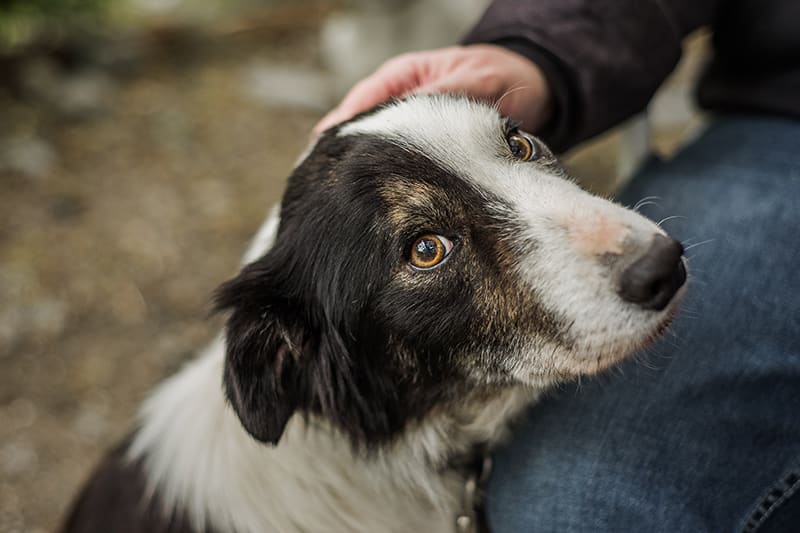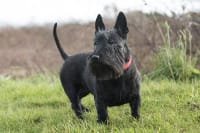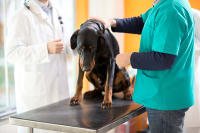Pet Care
Signs of Bone Cancer in Dogs & How It’s Treated
Bone Cancer in Dogs
Bone cancers can originate from cells that normally reside in the bone space (primary cancer) or as a metastatic disease which has spread from cancers elsewhere in your pet’s body. Osteosarcoma is the most common type of primary bone cancer seen in dogs, accounting for approximately 95% of bone tumors. Other types of bone cancer include:
- Myeloma (Bone marrow cancer which affects the white blood cells)
- Chondrosarcoma (The second most common type of bone cancer in dogs, often found in the nasal cavity and ribs)
Osteosarcoma
Osteosarcoma is an aggressive cancer which leads to the malignant, abnormal growth of immature bone cells. This form of bone cancer is known to spread quickly to other parts of the body, making early detection and treatment essential in order to achieve good treatment outcomes.
While osteosarcoma is a very serious condition in dogs, there is hope. If diagnosed in the very earliest stages, life-saving surgery may be possible to amputate the cancerous limb.
Dog Breeds Facing An Increased Risk of Osteosarcoma
It’s important to note that any breed of dog can develop bone cancer although some breeds face a higher risk of developing the disease than others, including:
- Scottish Deerhounds which are genetically predisposed to osteosarcoma
- Rottweilers and other large-breed dogs
- Great Danes and other giant-breed dogs
Veterinary Oncology
If your dog is showing any of the following signs bone cancer, book an appointment with a veterinary oncology team right away. Veterinarians specializing in oncology will have the appropriate technology to diagnose bone cancer and offer an effective treatment plan.
Signs of Bone Cancer in Dogs
Osteosarcoma will often appear in the dog’s front limbs near the shoulder, wrist, and knee. That said, your dog’s jaw, facial bones, vertebrae, ribs, and rear legs could also be affected by osteosarcoma. The early signs of bone cancer in dogs can difficult for pet parents to recognize since symptoms tend to be subtle. Below are some of the most common symptoms of bone cancer that pet parents should watch for:
- Loss of appetite and Lethargy
- Neurologic signs, such as a wobbly gait
- Indications of severe pain
- Discharge from the nostrils
- Breathing difficulties
- Swelling in the ribs, spine, legs, or jaw
- Limping or lameness
- Growth of a mass on the dog’s body
When to See Your Veterinarian
Bone cancer in dogs can quickly spread to other organs. For that reason, pet parents should always take symptoms seriously and make an appointment with their vet as soon as possible if they spot any of the symptoms listed above. When it comes to your pet’s health it’s always better to err on the side of caution.
Diagnosing Osteosarcoma in Dogs
If your vet suspects that your dog has developed bone cancer they will perform a physical and orthopedic examination of your pet and recommend an X-ray be done to look for signs of bone cancer.
If a possible tumor appears on the X-ray the area will biopsied for a definitive diagnosis. Blood tests, urinalysis, chest X-rays or a CT scan may also be performed to help assess your dog’s overall health and determine whether the cancer has spread to your pets respiratory system or other organs.
Treating Bone Cancer in Dogs
Due to the aggressive nature of osteosarcomas tumors, the most common treatment is amputation of the affected limb followed by chemotherapy to treat metastasis.
Radiation treatment can be effective for providing pain relief if surgery is not an option. As few as two treatments could help to relieve your dog’s cancer related pain for as long as several months.
If your dog is diagnosed with osteosarcoma your vet will develop a specialized treatment plan to coordinate cancer treatments and help your pet achieve the best possible outcome. New therapies and procedures are always being studied and alternative options may be available to help your dog.
At Animal Hospital of Clemmons our veterinarians take the time to discuss recent bone cancer treatment developments with you so that you are able to understand your dog’s treatment options.
Prognosis for Dogs With Bone Cancer
Sadly, the prognosis for many dogs with bone cancer is poor since the disease often is not detected until it has become fairly advanced and has begun to spread.
The prognosis for your dog will depend on the severity and spread of the disease, as well as the treatment you choose, and factors such as age, weight, and where the tumor is located.
Your veterinarian will take the time to discuss the best treatment options, and prognosis for your dog.
Note: The advice provided in this post is intended for informational purposes and does not constitute medical advice regarding pets. For an accurate diagnosis of your pet’s condition, please make an appointment with your vet.
If your dog is displaying any signs and symptoms of bone cancer, contact our Contact Animal Hospital of Clemmons right away to book an examination for your pet.
Looking for a vet in
Clemmons?
We’re always accepting new patients, so contact our veterinary hospital today to book your pet’s first appointment.
Related Articles View All
Puppy Teething Tips for Pet Parents
Our Clemmons vets understand how trying it can be when your puppy starts teething. Teething pain often leads puppies to chew on things they shouldn’t – including your best shoes and furniture. Here are a few tips to help you and your puppy deal with your puppy’s teething.
Dog Grooming 101 – Grooming Different Coat Types
Although all dogs require brushing, bathing and general grooming, some require more care than others. Today our Clemmons pet grooming team explains how to care for dog coats of different textures and lengths.
What To Do About Your Dog’s Stinky Breath
Do you avoid getting close to your pup because their stinky breath is unbearable? Bad breath is common in dogs — especially in senior dogs — and can be a sign of a serious health issue. Our Clemmons vets explain some causes of dog bad breath and how you can help to treat or even prevent it.
Why should I enrol my pet in a Wellness Plan?
If your veterinary clinic offers Pet Wellness Plans you may be curious as to how these plans work and whether they are worth signing up for. Today, our Clemmons vets share 4 benefits to consider when deciding whether a Pet Wellness Plan is right for you and your pet.
Dog Acupuncture & The Conditions It Can Treat
Our Clemmons vets know that if your pet is suffering from a health issue you will want to do all you can to help them feel better. Pet acupuncture can be a noninvasive way to help improve your pet’s rehabilitation. Here’s a bit about how acupuncture for dogs works and when it can be used.







